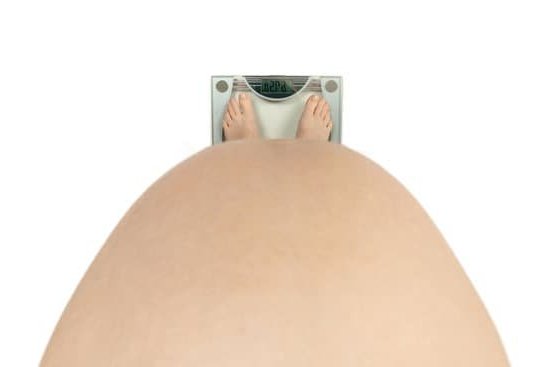Are you wondering how early can I take a pregnancy test? The answer to this question is crucial for many women who are eagerly awaiting the results. Early detection of pregnancy can provide important information for both emotional and physical reasons, which is why understanding the timing and accuracy of pregnancy tests is so important. The emotional impact of waiting for results can be overwhelming, making it essential to have the necessary knowledge and support during this time.
The process of understanding early pregnancy tests involves learning about different types of tests available and how they work. Knowing the science behind early detection, including when a pregnancy can be detected after conception and the hormone levels that tests detect, is also important. Additionally, factors such as ovulation and implantation can affect test accuracy, highlighting the need for proper timing in testing.
As you navigate through early testing, it’s essential to know best practices and tips for avoiding false negatives or false positives. The psychological impact of waiting for results cannot be overstated, making coping strategies an important aspect to consider. Seeking medical advice at the right time is also crucial, underscoring the importance of prenatal care for early detection.
Understanding Early Pregnancy Tests
Early pregnancy testing is an important step for many women who are eager to confirm whether or not they are pregnant, often because they are excited about the possibility of becoming parents. However, this waiting period can also be emotionally and physically stressful, as it can seem like an eternity until potential results come in.
There are several different types of early pregnancy tests available on the market today. Some examples include digital tests, traditional tests that use a color indicator to show results, and even tests that claim to provide results before a missed period. These tests work by detecting the presence of the hormone human chorionic gonadotropin (hCG) in a woman’s urine or blood sample, which is produced during early pregnancy.
The accuracy of these tests can vary depending on when they are used. Some claim to provide accurate results as early as six days before a missed period, while others may require waiting until after a missed period for more reliable results.
It’s important for women to understand the differences between these types of early pregnancy tests and their respective accuracies to make informed decisions about when to take them. Below is a list outlining different types of early pregnancy tests:
- Digital tests
- Traditional line indicator tests
- Tests claiming early detection
The Science Behind Early Detection
Early pregnancy testing has become increasingly popular for women who are eager to find out if they are expecting. Many women wonder, “how early can I take a pregnancy test?” The answer to this question lies in the science behind early detection.
Pregnancy tests work by detecting the presence of human chorionic gonadotropin (hCG) in the urine or blood. This hormone is produced by the cells that form the placenta and can be found in detectable levels as early as 7-12 days after ovulation. However, most over-the-counter urine tests are designed to be used after a missed period, which typically occurs two weeks after ovulation.
It’s important to note that the accuracy of an early pregnancy test depends on various factors such as the sensitivity of the test, the timing of implantation, and individual hCG levels. While some tests claim to provide accurate results several days before a missed period, it is recommended to wait until after your expected period for more reliable results.
| Factor | Information |
|---|---|
| Presence of hCG | Hormone produced by cells that form the placenta |
| Early Detection Timeframe | 7-12 days after ovulation |
| Test Accuracy Factors | Sensitivity of test, timing of implantation, individual hCG levels |
Factors That Affect Early Testing
When it comes to taking a pregnancy test, timing is crucial. The accuracy of the results can be influenced by various factors, including ovulation and implantation. Here are some key factors that can affect early pregnancy testing:
- Ovulation: The timing of ovulation plays a significant role in determining when you can take a pregnancy test. If you have irregular cycles or are unsure about your ovulation date, it may be more challenging to determine the best time for testing.
- Implantation: After fertilization, the embryo needs to implant into the uterus before pregnancy hormones can be detected. This process usually occurs 6-12 days after ovulation, although it can vary from woman to woman.
- Proper Timing: To increase the accuracy of early testing, it’s important to wait until after you miss a period or at least 10-14 days after ovulation. Testing too early can result in false negatives, leading to unnecessary stress and uncertainty.
It’s essential to consider these factors when deciding how early you can take a pregnancy test. By understanding the influence of ovulation and implantation on test accuracy and ensuring proper timing, you can increase the likelihood of obtaining reliable results without unnecessary anxiety and disappointment.
Tips for Testing Early
When it comes to early pregnancy testing, timing is crucial. Many women may wonder “how early can I take a pregnancy test?” The answer to this question depends on the type of test being used and a variety of other factors.
Generally, most over-the-counter pregnancy tests are designed to detect the presence of the hormone hCG (human chorionic gonadotropin), which is produced by the placenta after a fertilized egg attaches to the uterine lining. This hormone can typically be detected in urine around 6-12 days after conception.
For those eager to find out if they are pregnant as soon as possible, there are early detection pregnancy tests available that claim to provide accurate results several days before a missed period. These tests are designed to detect lower levels of hCG, which allows for earlier detection of a pregnancy.
However, it’s important to keep in mind that while these tests may accurately detect some pregnancies early on, they are not foolproof and may still result in false negatives due to low hormone levels.
So, how early can I take a pregnancy test? Most healthcare professionals recommend waiting until at least one day after a missed period for the most accurate results. Testing too early can increase the likelihood of receiving a false negative result, leading to disappointment and unnecessary anxiety. It’s also important to ensure that you follow the instructions provided with the test carefully, as improper use can also affect the accuracy of the results.
| Early Pregnancy Testing Tip | Description |
|---|---|
| Wait Until After Missed Period | For most accurate results, wait until at least one day after your missed period before taking an at-home pregnancy test. |
| Use Early Detection Tests Carefully | If opting for an early detection test that claims to provide accurate results before a missed period, be sure to read and follow all instructions carefully. |
| Avoid Testing Too Early | Testing too early can lead to false negatives and unnecessary anxiety; it’s best to wait for more reliable results |
The Emotional Rollercoaster
The Psychological Impact of Waiting for Results
Taking a pregnancy test, especially early on, can be an emotional rollercoaster for many individuals. The anxiety and anticipation of waiting for the results can lead to a range of emotions, including nervousness, excitement, and fear. The uncertainty of not knowing whether you are pregnant or not can take a toll on your mental well-being.
Coping Strategies for Dealing With the Wait
It’s important to have coping strategies in place to manage the emotional stress that comes with waiting for pregnancy test results. Engaging in relaxation techniques such as deep breathing, meditation, or yoga can help alleviate anxiety. Surrounding yourself with support from loved ones and talking about your feelings can also be beneficial during this time. Additionally, finding activities to keep yourself busy and distracted while awaiting the results can help ease the emotional strain.
Seeking Professional Support
Sometimes, the emotional toll of waiting for pregnancy test results may become overwhelming. It’s okay to seek professional support if you find yourself struggling to cope with the uncertainty. Speaking to a therapist or counselor can provide you with valuable tools and techniques to manage your emotions throughout this process. Seeking medical advice from a healthcare provider who specializes in reproductive health can also offer reassurance and guidance during this challenging time.
Understanding the emotional impact of early pregnancy testing is crucial in order to prioritize mental well-being during this process”.
When to Seek Medical Advice
When to Consult a Healthcare Professional for Confirmation
If you have taken a home pregnancy test and received a positive result, it is important to follow up with a visit to your healthcare provider. They can conduct further testing to confirm the pregnancy and provide you with essential guidance on prenatal care, including recommendations for vitamins, diet, exercise, and managing any potential pregnancy symptoms.
This early visit will also allow your doctor to address any concerns you may have about your pregnancy and discuss any risk factors that may need attention.
The Importance of Prenatal Care for Early Detection
Seeking medical advice early in your pregnancy is crucial for the health of both you and your baby. Prenatal care plays an essential role in monitoring the progress of your pregnancy, ensuring any potential complications are identified and addressed promptly.
Your healthcare provider can also offer valuable advice on best practices during early pregnancy and help you establish a plan for the months ahead. Additionally, routine prenatal appointments can provide emotional support and reassurance as you navigate this significant life change.
Emotional Support During the Early Testing Phase
The early stages of pregnancy can be emotionally overwhelming, especially when waiting for confirmation from medical professionals. Seeking emotional support from loved ones or joining communities of expectant mothers online or in person can provide solace during this time of uncertainty.
Many women find comfort in sharing experiences with others who are going through similar journeys, which can help alleviate anxiety and stress while awaiting medical advice. Remember that it’s normal to experience a range of emotions during this period, but seeking out supportive resources can make all the difference as you navigate the early stages of pregnancy.
Conclusion
In conclusion, the ability to detect a pregnancy early is a significant milestone for many women who are eager to start or expand their families. Understanding how early pregnancy tests work, the science behind detection, and factors that affect accuracy can help individuals prepare for the emotional rollercoaster that comes with waiting for results. It is important to remember that seeking medical advice and proper prenatal care is crucial during this early testing phase.
The timing of when you can take a pregnancy test depends on various factors such as ovulation, implantation, and the sensitivity of the test being used. While some tests claim to provide accurate results several days before a missed period, it is important to follow best practices for early testing and be mindful of the possibility of false negatives or false positives.
The emotional impact of waiting for pregnancy test results should not be underestimated. It is crucial to seek support and guidance during this time, as the anticipation can lead to anxiety and stress. Remember that reaching out to healthcare professionals for confirmation and advice can provide reassurance and support as you navigate through this exciting but uncertain time in your life.
Frequently Asked Questions
How Soon Will a Pregnancy Test Read Positive?
A pregnancy test can read positive as early as 7-10 days after conception, but for more accurate results, it’s generally recommended to wait until the first day of a missed period.
How Early in Pregnancy Can You Test Positive?
Some pregnancy tests claim to be able to detect pregnancy as early as 6 days before a missed period, but typically, most women will get an accurate result if they wait until about a week after their missed period.
What Pregnancy Test Will Show the Earliest?
The most sensitive pregnancy tests that can detect hCG at the lowest levels are usually early result tests or digital tests. These types of tests may be able to provide a positive result earlier than traditional line tests.

Welcome to my fertility blog. This is a space where I will be sharing my experiences as I navigate through the world of fertility treatments, as well as provide information and resources about fertility and pregnancy.





